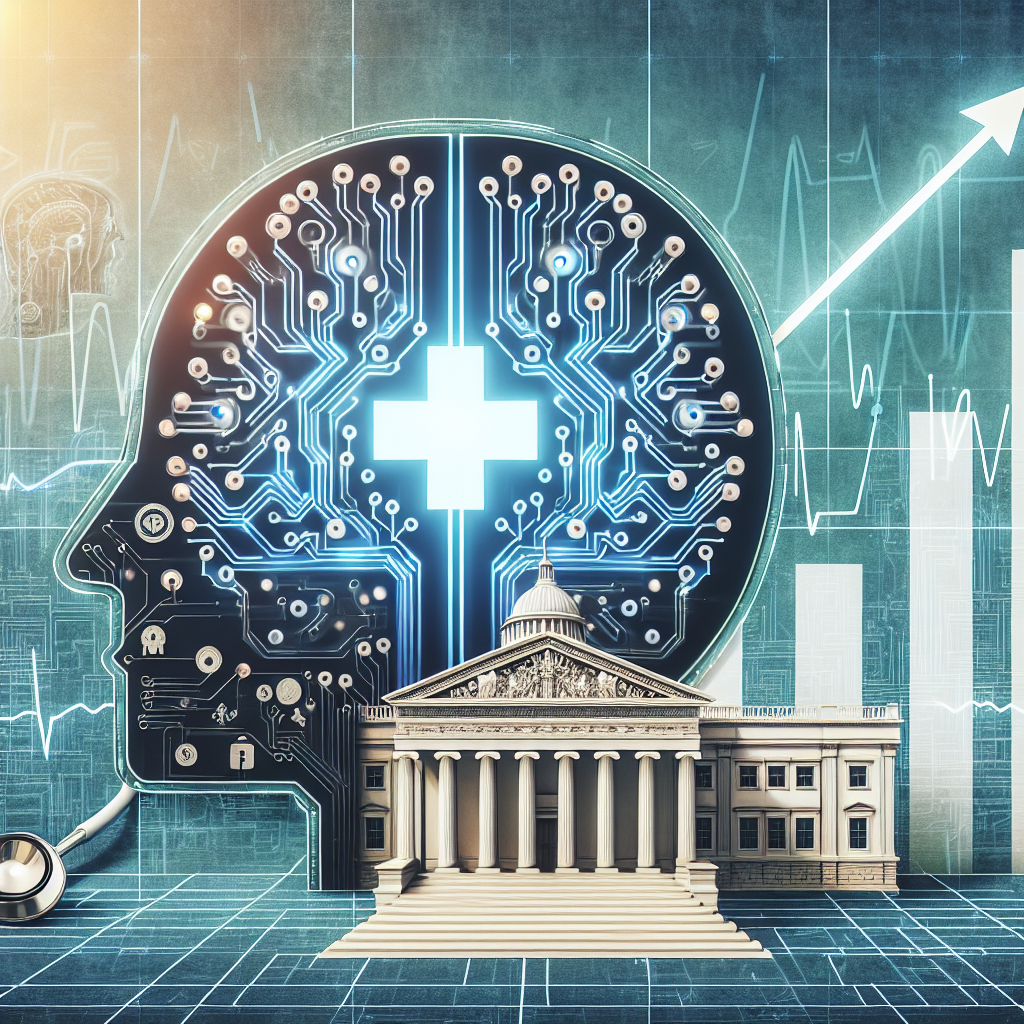The Benefits of AI in Improving Government Healthcare Systems
Artificial intelligence (AI) has the potential to revolutionize healthcare systems around the world, including those run by governments. By incorporating AI into government healthcare systems, countries can improve patient care, increase efficiency, and reduce costs. In this article, we will explore the various benefits of AI in improving government healthcare systems.
1. Enhanced Diagnosis and Treatment
One of the key benefits of AI in healthcare is its ability to enhance diagnosis and treatment. AI algorithms can analyze vast amounts of medical data, including patient records, lab results, and imaging scans, to help healthcare providers make more accurate diagnoses. This can lead to earlier detection of diseases and more personalized treatment plans for patients.
For example, AI-powered imaging tools can help radiologists identify abnormalities in X-rays, MRIs, and CT scans more quickly and accurately. This can lead to faster diagnosis and treatment for patients, ultimately improving outcomes and reducing healthcare costs.
2. Improved Patient Care
AI can also improve patient care by enabling healthcare providers to deliver more personalized and proactive care. AI algorithms can analyze patient data in real-time to identify patterns and trends, allowing providers to anticipate and address potential health issues before they escalate.
For example, AI-powered monitoring systems can track patients’ vital signs and alert healthcare providers to any abnormalities. This can help prevent medical emergencies and reduce hospital readmissions, ultimately improving patient outcomes and reducing healthcare costs.
3. Increased Efficiency
Another benefit of AI in government healthcare systems is increased efficiency. AI-powered tools can automate repetitive tasks, such as scheduling appointments, processing insurance claims, and managing medical records, freeing up healthcare providers to focus on patient care.
AI can also improve the efficiency of healthcare processes, such as drug discovery, clinical trials, and population health management. By analyzing large datasets and identifying trends, AI can help healthcare providers make more informed decisions and streamline their operations.
4. Cost Savings
By improving diagnosis, treatment, patient care, and efficiency, AI can help government healthcare systems reduce costs. AI-powered tools can help healthcare providers identify cost-effective treatment options, reduce unnecessary tests and procedures, and prevent medical errors.
AI can also help government healthcare systems identify areas of waste and inefficiency, such as overuse of healthcare services, fraud, and abuse. By analyzing data and identifying patterns, AI can help healthcare providers reduce costs and improve the quality of care for patients.
5. Enhanced Public Health
AI can also play a key role in enhancing public health by analyzing population data to identify trends and patterns. For example, AI algorithms can analyze social media data to track disease outbreaks, predict healthcare trends, and inform public health interventions.
By leveraging AI to analyze population data, government healthcare systems can better understand the health needs of their communities and tailor their services accordingly. This can help improve public health outcomes and reduce healthcare disparities.
FAQs
Q: How is AI being used in government healthcare systems?
A: AI is being used in government healthcare systems in a variety of ways, including enhancing diagnosis and treatment, improving patient care, increasing efficiency, reducing costs, and enhancing public health.
Q: What are some examples of AI-powered tools in healthcare?
A: Some examples of AI-powered tools in healthcare include imaging analysis tools, monitoring systems, virtual health assistants, predictive analytics, and population health management platforms.
Q: How can government healthcare systems benefit from AI?
A: Government healthcare systems can benefit from AI by improving diagnosis and treatment, enhancing patient care, increasing efficiency, reducing costs, and enhancing public health.
Q: What are some challenges of implementing AI in government healthcare systems?
A: Some challenges of implementing AI in government healthcare systems include data privacy concerns, regulatory hurdles, interoperability issues, and workforce training needs.
In conclusion, AI has the potential to revolutionize government healthcare systems by improving diagnosis and treatment, enhancing patient care, increasing efficiency, reducing costs, and enhancing public health. By leveraging AI-powered tools and algorithms, government healthcare systems can provide better care for patients and improve health outcomes for their communities.

